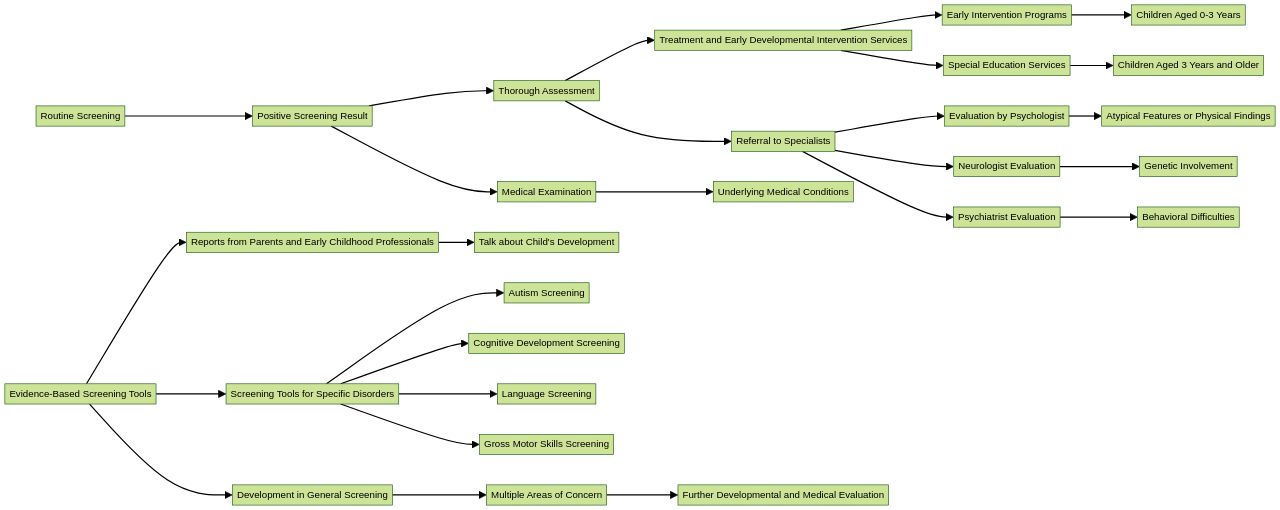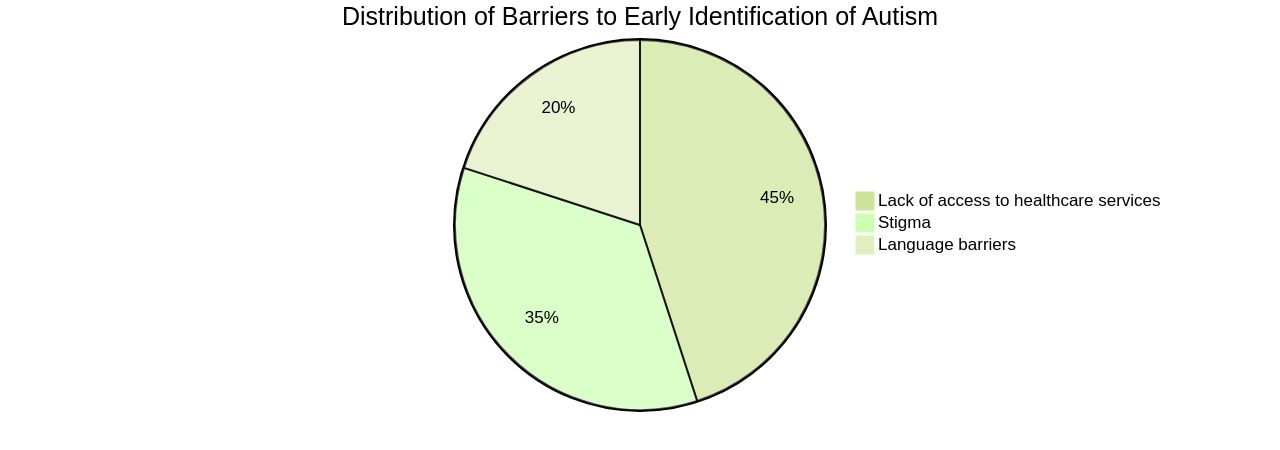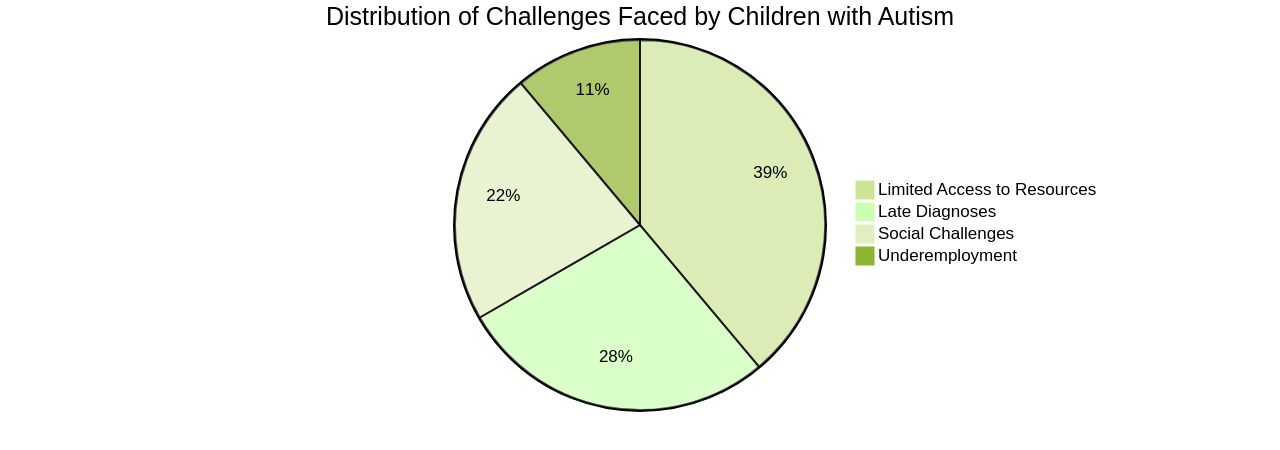Introduction
Autism, a neurodevelopmental disorder, affects how individuals interact, communicate, behave, and learn. Early detection and understanding of autism are crucial for connecting children and families to support and services.
This article explores the journey of parent advocates, providing guidance on building a support network, educating oneself about autism, advocating for a child's needs, and promoting inclusion and acceptance. By empowering parent advocates with knowledge and resources, we aim to ensure the well-being and success of children with autism.
Understanding Autism Diagnosis
Autism, a neurodevelopmental disorder, affects how individuals interact, communicate, behave, and learn. It is crucial to identify the early signs of autism, which can be detected in children as young as 12–14 months, thanks to research on routine screening in well-baby checkups.
This early detection can significantly impact children and families by connecting them to support and services as soon as possible. The modern understanding of autism as a neurodevelopmental disorder emerged in the 1940s and became a diagnostic label by the 1980s.
The diagnostic criteria evolved over time, and by the early 2000s, clinicians had evidence-based tools to identify children with autism as early as 36 months. However, parents may notice signs even earlier, in the child’s second year of life.
The diagnostic process varies significantly, with reported rates of diagnosis ranging from less than 50% to more than 80%, largely due to the central role of clinical judgment in the autism diagnostic process. Early intervention, such as behavioral therapy, has been shown to yield better outcomes for the child. The DSM-5 criteria require that the core features of Autism be present in early childhood. However, for some children, the symptoms may not fully manifest until social demands exceed the person's capacity to cope with them. Autism typically appears by age 3, though diagnosis and intervention can and should begin earlier.

Building a Support Network
Navigating the path of autism demands a robust support network for those in the role of parent advocates. This network, a blend of friends, family, and professionals, is instrumental in offering emotional succor, guidance, and resources.
The journey starts with understanding autism. Brain scans reveal differences in the brain structure of those with autism compared to neurotypical development.
It's important to dispel misinformation around autism. It is not caused by vaccines, parenting styles, or nutrition.
Genetic research is ongoing to understand its cause. Children diagnosed with autism by age 4 are significantly more likely to receive services.
However, barriers such as stigma, lack of access to healthcare services, and language barriers may prevent early identification in some children, particularly those of color. Creating a personalized plan through comprehensive evaluation is paramount, and it is equally vital to have an open communication channel between therapists and families.
The importance of understanding the specific needs of individuals with autism cannot be overstated. The societal and psychological challenges they face are unique, and hence, their therapeutic needs are similar yet different from neurotypical individuals. The role of hope in this journey is profound, as every day brings a new beginning and a new ending. The unwavering self-advocacy and bravery required of parents and caregivers of children on the autism spectrum are commendable. Persistence is key in finding the right support for children with autism. Remember, help is available, and you are not alone in this journey.

Educating Yourself about Autism
In the journey of understanding and supporting children with autism, it's crucial to recognize the uniqueness of each child's experience. Autism, a form of neurodivergence, manifests distinctively in every child, influencing their communication, social interaction, and sensory processing. As such, it's vital to stay informed about the latest research, advancements, and interventions in the field.
One cannot overlook the importance of education in this process. For instance, The Autism Community in Action (TACA) offers valuable insights into navigating the educational system, understanding the role of Individual Education Plans (IEPs), and exploring alternatives to traditional public education. Moreover, the U.S. Department of Education provides data on the prevalence of autism among students, shedding light on the increasing need for effective support systems.
Recent studies underscore the need for early interventions, with children diagnosed by age four being fifty times more likely to receive services. However, obstacles such as stigma, limited access to healthcare services, and language barriers may hinder early identification, particularly among Hispanic children and children of color. Therefore, it's essential to advocate for equitable access to resources and services.
In the words of an unknown author, 'Every day brings a new beginning and a new ending.' This sentiment encapsulates the daily experiences of living with autism - each day is unique, offering its own set of challenges and rewards. Hence, remaining hopeful and continually striving to build understanding and support can significantly enhance the quality of life for children with autism.

Advocating for Your Child's Needs
Parents advocating for their children's needs in various environments, including education, healthcare, and community settings, is an essential aspect of their role. Advocacy involves understanding your child’s rights, preparing for meetings, and communicating with professionals.
A case in point is the program DAY, which has served over 450 patients in Manitoba since 2010, offering gender-affirming medical care to transgender youth and their families. Advocacy also involves self-care and seeking support for yourself as a parent advocate.
As highlighted by the Summer Health program, which provides pediatric care via text message, it is crucial to have a robust support system. Parents must also navigate complex systems to access these programs, which can be a challenging task.
According to a report based on 1,300 responses from parents of children ages 11 to 18, over half of parents would prefer to keep their children home when unsure of their health status. There is also a need to consider academic implications in such decisions, with nearly two-thirds of parents stating their child worries about the negative impact on grades due to absence.
The importance of understanding your state's legislators and effective communication is also emphasized by James MacIntyre, M.D. Moreover, it is vital to engage in advocacy activities and organize forums to raise awareness of children's mental health issues. Furthermore, understanding and addressing mental health problems with your child is crucial. It is important to speak at a level that is appropriate for your child's age and development level, and to watch for reactions during the discussion. The mental health industry has been criticized for pushing parents away from their parental roles, emphasizing the need for parents to reclaim their right to oversee the mental health care of their children. Finally, in a representative sample that matched national parent demographics, it was found that parents who believed their child was below grade level in math was ±11.4 percentage points.

Promoting Inclusion and Acceptance
Being a supportive ally for children with autism necessitates the cultivation of an embracing and inclusive community. This involves not only spreading awareness about autism but also advocating for inclusive policies and programs. The autism diagnosis should acknowledge and celebrate the unique strengths and abilities of individuals with autism, embodying the essence of neurodiversity.
Recent articles in The Journal of Pediatrics, Perinatology, and Child Health highlight the limited access to resources and trained professionals for autism diagnosis in children, particularly in Africa. The late diagnoses of autism can have lifelong impacts due to the lack of services, and early interventions have been proven to significantly improve outcomes. Children with autism often face social challenges, such as isolation and bullying in school, due to their unique behaviors like 'stimming' associated with autism diagnosis.
As these children grow into adults, they may struggle to find fulfilling employment, often working below their abilities – a phenomenon known as 'underemployment'. The increase in the number of autism diagnoses, as reported in recent news, is attributed to better screening, increased knowledge, and reduced barriers to care. However, this also means that a growing segment of our community will receive an autism diagnosis, underscoring the pressing need for inclusion and acceptance.
For individuals with an autism diagnosis, every day presents its own unique challenges and triumphs, as the saying goes, 'Every day brings a new beginning and a new ending.' By fostering an inclusive and accepting community, we can support these individuals and their families, ensuring that they are not ignored but instead, embraced for their unique contributions.

Conclusion
In conclusion, the journey of a parent advocate in supporting children with autism is filled with challenges and rewards. Understanding autism and its early detection are crucial for connecting families to the necessary support and services. Building a strong support network, including friends, family, and professionals, is essential for emotional succor and guidance.
Education plays a vital role in empowering parent advocates. Staying informed about the latest research, advancements, and interventions helps navigate the unique experiences of each child with autism. Advocating for equitable access to resources and services is crucial to ensure early intervention and support.
Advocacy for a child's needs is an integral part of a parent advocate's role. Understanding rights, preparing for meetings, and effective communication with professionals are key aspects of this process. Seeking support for oneself as a parent advocate and engaging in advocacy activities can make a significant difference.
Promoting inclusion and acceptance is vital to creating an embracing community for individuals with autism. Acknowledging their unique strengths and abilities while advocating for inclusive policies and programs is essential. Late diagnoses and limited access to resources highlight the need for increased awareness and better support systems.
By empowering parent advocates with knowledge, resources, and a supportive network, we can ensure the well-being and success of children with autism. Each day brings new challenges and triumphs, but with hope, persistence, and an inclusive community, we can make a lasting impact on the lives of individuals with autism. Remember, you are not alone in this journey - help is available every step of the way.




